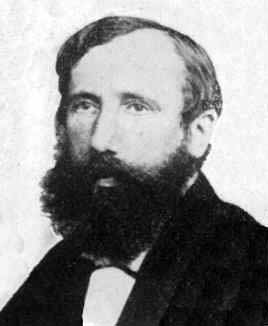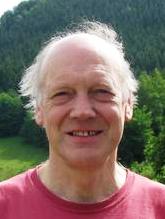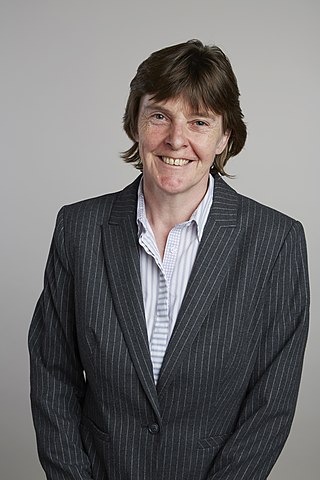Related Research Articles

Sir Isaac Newton was an English polymath active as a mathematician, physicist, astronomer, alchemist, theologian, and author who was described in his time as a natural philosopher. He was a key figure in the Scientific Revolution and the Enlightenment that followed. His pioneering book Philosophiæ Naturalis Principia Mathematica, first published in 1687, consolidated many previous results and established classical mechanics. Newton also made seminal contributions to optics, and shares credit with German mathematician Gottfried Wilhelm Leibniz for developing infinitesimal calculus, though he developed calculus years before Leibniz. He is considered one of the greatest and most influential scientists in history.

John Maynard Smith was a British theoretical and mathematical evolutionary biologist and geneticist. Originally an aeronautical engineer during the Second World War, he took a second degree in genetics under the well-known biologist J. B. S. Haldane. Maynard Smith was instrumental in the application of game theory to evolution with George R. Price, and theorised on other problems such as the evolution of sex and signalling theory.

Nicholas Saunderson was a blind English scientist and mathematician. According to one historian of statistics, he may have been the earliest discoverer of Bayes' theorem. He worked as Lucasian Professor of Mathematics at Cambridge University, a post also held by Isaac Newton, Charles Babbage and Stephen Hawking.

Isaac Todhunter FRS, was an English mathematician who is best known today for the books he wrote on mathematics and its history.
Benjamin Robins was a pioneering British scientist, Newtonian mathematician, and military engineer.

The Isaac Newton Institute for Mathematical Sciences is an international research institute for mathematics and its many applications at the University of Cambridge. It is named after one of the university's most illustrious figures, the mathematician and natural philosopher Sir Isaac Newton, and occupies one of the buildings in the Cambridge Centre for Mathematical Sciences.

Anthony William Fairbank Edwards, FRS is a British statistician, geneticist and evolutionary biologist. He is the son of the surgeon Harold C. Edwards, and brother of medical geneticist John H. Edwards. He has sometimes been called "Fisher's Edwards" to distinguish him from his brother, because he was mentored by Ronald Fisher. Edwards has always had a high regard for Fisher's scientific contributions and has written extensively on them. To mark the Fisher centenary in 1990, Edwards proposed a commemorative Sir Ronald Fisher window be installed in the Dining Hall of Gonville & Caius College. When the window was removed in 2020, he vigorously opposed the move.
Warren John Ewens is an Australian-born mathematician who has been Professor of Biology at the University of Pennsylvania since 1997. He concentrates his research on the mathematical, statistical and theoretical aspects of population genetics. Ewens has worked in mathematical population genetics, computational biology, and evolutionary population genetics. He introduced Ewens's sampling formula.
Sir Peter James Donnelly is an Australian-British mathematician and Professor of Statistical Science at the University of Oxford, and the CEO of Genomics PLC. He is a specialist in applied probability and has made contributions to coalescent theory. His research group at Oxford has an international reputation for the development of statistical methodology to analyze genetic data.

Edward John Routh was an English mathematician, noted as the outstanding coach of students preparing for the Mathematical Tripos examination of the University of Cambridge in its heyday in the middle of the nineteenth century. He also did much to systematise the mathematical theory of mechanics and created several ideas critical to the development of modern control systems theory.

John Colson was an English clergyman, mathematician, and the Lucasian Professor of Mathematics at Cambridge University.

Sir David James Wallace, CBE, FRS, FRSE, FREng is a British physicist and academic. He was the Vice-Chancellor of Loughborough University from 1994 to 2005, and the Master of Churchill College, Cambridge from 2006 to 2014.

David George Kendall FRS was an English statistician and mathematician, known for his work on probability, statistical shape analysis, ley lines and queueing theory. He spent most of his academic life in the University of Oxford (1946–1962) and the University of Cambridge (1962–1985). He worked with M. S. Bartlett during World War II, and visited Princeton University after the war.

Sir Bernard Walter Silverman, is a British statistician and former Anglican clergyman. He was Master of St Peter's College, Oxford, from 1 October 2003 to 31 December 2009. He is a member of the Statistics Department at Oxford University, and has also been attached to the Wellcome Trust Centre for Human Genetics, the Smith School of Enterprise and the Environment, and the Oxford-Man Institute of Quantitative Finance. He has been a member of the Council of Oxford University and of the Council of the Royal Society. He was briefly president of the Royal Statistical Society in January 2010, a position from which he stood down upon announcement of his appointment as Chief Scientific Adviser to the Home Office. He was awarded a knighthood in the 2018 New Years Honours List, "For public service and services to Science".
John Francis Toland FRS FRSE is an Irish mathematician based in the UK. From 2011 to 2016 he served as Director of the Isaac Newton Institute for Mathematical Sciences and N M Rothschild & Sons Professor of Mathematical Sciences at the University of Cambridge.

Geoffrey Richard GrimmettOLY is an English mathematician known for his work on the mathematics of random systems arising in probability theory and statistical mechanics, especially percolation theory and the contact process. He is the Professor of Mathematical Statistics in the Statistical Laboratory, University of Cambridge, and was the Master of Downing College, Cambridge, from 2013 to 2018.

Prof Herbert Westren Turnbull FRS FRSE LLD was an English mathematician. From 1921 to 1950 he was Regius Professor of Mathematics at the University of St Andrews.

Alison Mary Etheridge is Professor of Probability and former Head of the Department of Statistics, University of Oxford. Etheridge is a fellow of Magdalen College, Oxford.
Jonathan Peter Keating is a British mathematician. As of September 2019, he is the Sedleian Professor of Natural Philosophy at the University of Oxford, and from 2012 to 2019 was the Henry Overton Wills Professor of Mathematics at the University of Bristol, where he served as Dean of the Faculty of Science (2009–2013). He has made contributions to applied mathematics and mathematical physics, in particular to quantum chaos, random matrix theory and number theory.
References
- 1 2 Anon (2007). "Kingman, Sir John (Frank Charles)" . Who's Who (online Oxford University Press ed.). Oxford: A & C Black. doi:10.1093/ww/9780199540884.013.23167.(Subscription or UK public library membership required.)
- 1 2 "Sir John Kingman FRS". London: Royal Society. Archived from the original on 17 November 2015.
- 1 2 3 4 5 6 7 8 9 10 11 12 13 14 15 "John Frank Charles Kingman". MacTutor History of Mathematics archive . University of St Andrews . Retrieved 19 November 2010.
- ↑ John Kingman at the Mathematics Genealogy Project
- ↑ Kingman's page at the Isaac Newton Institute
- 1 2 3 4 5 6 7 8 9 "Sir John Kingman, FRS". Isaac Newton Institute . Retrieved 19 November 2010.
- 1 2 3 4 5 "Interview with Sir John Kingman" (PDF). Newsletter No. 43. European Mathematical Society. March 2002. Retrieved 19 November 2010.
- ↑ Kingman, J.F.C. (1982). "On the genealogy of large populations" (PDF). Journal of Applied Probability . 19: 27–43. doi:10.2307/3213548. JSTOR 3213548. S2CID 125055288.
- ↑ Kingman, J.F.C. (2000). "Origins of the coalescent 1974-1982". Genetics. 156 (4): 1461–1463. doi:10.1093/genetics/156.4.1461. PMC 1461350 . PMID 11102348.
- ↑ Wakeley, John (2009). "Coalescent Theory. An Introduction". Greenwood Village, Colorado: Roberts & Company.
{{cite journal}}: Cite journal requires|journal=(help) - ↑ "University chiefs get 9.3% pay rise". BBC News . 8 February 2002. Retrieved 19 November 2010.
- ↑ "The List of Past Presidents". Royal Statistical Society. Archived from the original on 17 March 2012. Retrieved 19 November 2010.
- ↑ "Presidents of the London Mathematical Society". MacTutor History of Mathematics archive . University of St Andrews . Retrieved 19 November 2010.
- ↑ Kingman, J. F. C.; Department of Education and Science (1988). Report of the Committee of Inquiry into the Teaching of English Language. The Stationery Office Books: London. ISBN 0-11-270650-9.
- ↑ "Chairman of the Statistics Commission appointed" (Press release). HM Treasury. 29 March 2000. Archived from the original on 10 September 2008. Retrieved 19 November 2010.
- ↑ "Days numbered for census?". BBC News . 19 February 2002. Retrieved 19 November 2010.
- ↑ "Census 'should be reviewed'". BBC News . 6 March 2002. Retrieved 19 November 2010.
- ↑ "Select Committee on Treasury: Minutes of Evidence". Parliament of the United Kingdom. 21 November 2001. Retrieved 19 November 2010.
- ↑ "LMS Prizes: Berwick Prize". London Mathematical Society. Archived from the original on 4 August 2007. Retrieved 19 November 2010.
- ↑ "Fellows". The Royal Society. Archived from the original on 7 October 2010. Retrieved 19 November 2010.
- ↑ "Royal Medal: Royal archive winners 1989 – 1950". The Royal Society . Retrieved 19 November 2010.
- ↑ Kingman, John (11 March 2018). "Kingman". Telegraph announcements. Telegraph Media Group Limited.